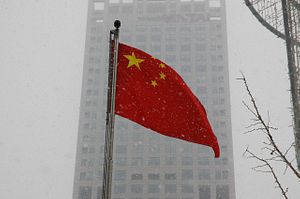On May 4, China’s nine ministries jointly issued an “Opinion on the Healthy Development of Social Think Tanks,” providing detailed guidance on establishing think tanks “with Chinese characteristics.”
The nine ministries — the Ministry of Civil Affairs, the Publicity Department of the Communist Party of China (CPC), the Organization Department of CPC,the Ministry of Foreign Affairs, the Ministry of Public Security, the Ministry of Finance, the Ministry of Human Resources and Social Security, the General Administration of Press and Publication, and the State Bureau of Statistics — involve both the Party and the government.
The comprehensive combination implies two things: first, all nine ministries will play a role in regulating Chinese think tanks; and second, China is really serious about developing think tanks now.
So what kind of think tanks does China want to establish?
According to the Opinion, the top priority of Chinese think tanks is to “serve the Party and the government’s policy.” “Strengthening the Party’s leadership” is the basic principle. All think tanks should “be led by the Party’s theory, guidelines, and policy” and “take the development route with Chinese characteristics.”
In order to adhere to the principle, “strengthening the work of the Party organization” is critical to new think tanks. The Opinion said:
The Party organization should play the role of political core. To ensure that think tanks are on the right political direction, the party organization should make suggestions on important matters including major decision-making, business activities, major expenses, accepting large donations, and carrying out foreign activities.
Under the basic principle, China will fully support the development of social think tanks — or non-governmental think tanks — in five ways:
- Allow social think tanks to participate in government consultations
- Develop pipelines for interactions between the government and social think tanks
- Broaden the social think tanks’ financing channels
- Recruit talents with international backgrounds and ensure their benefits
- Support social think tanks to carry out international exchanges
The fifth aspect is particularly worth noting. Keen on having its own voice in the world, Chinese authorities have realized that the think tanks are a good tool to achieve this goal through international exchanges. The Opinion expressed the intention very clearly, calling for the government to:
Encourage and support qualified social think tanks … to participate in public diplomacy and global governance, to tell good Chinese stories, to spread a good Chinese voice, to enhance national soft power, and to help China have a strong international say.
The new Opinion apparently shows that the Chinese authorities intend to shoot two birds with one stone: regulating non-governmental think tanks and then using these think tanks overseas for their own advantage.
However, there is also a big question mark hanging over the discussion: whether these well-regulated think tanks can still have an independent voice.

































